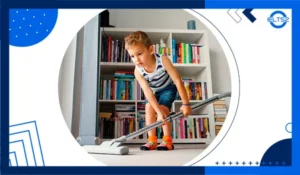پرتکرار ترین نمونه سوالات اسپیکینگ آیلتس پارت 3 (با جواب نمره 9)
پارت سوم اسپیکینگ آیلتس (IELTS Speaking Part 3) به عنوان بخش بحث و گفتوگو شناخته میشود و معمولاً 4 تا 5 دقیقه طول میکشد. در این بخش، آزموندهنده با ممتحن درباره موضوعاتی که در پارت دوم مطرح شدهاند، به بحث میپردازد. جدیدترین سوالات اسپیکینگ آیلتس سال 2025 پیشنهاد بعدی ما به شما عزیزان است.
ویژگی های سوالات اسپیکینگ آیلتس پارت 3
1. موضوعات عمومی: سوالات معمولاً به موضوعات اجتماعی، فرهنگی یا مسائل روز مربوط میشوند و نیاز به تفکر عمیق و تحلیل دارند.
2. گفتگو و استدلال: آزموندهنده باید توانایی خود را در بیان نظرات، دلایل و مثالها نشان دهد. این بخش فرصتی است برای نشان دادن توانایی تفکر انتقادی و تحلیل.
3. سوالات باز: سوالات معمولاً به صورت باز طراحی شدهاند، به این معنی که پاسخها میتوانند طولانیتر و پیچیدهتر باشند.
نکات برای موفقیت در پاسخگویی به سوالات اسپیکینگ آیلتس در پارت 3
آمادگی: باید با رایج ترین و جدیدترین موضوعات مختلف آشنا باشیم و با تمرین لغات این حوزه ها بتوانیم نظرات خود را درباره آنها شکل دهید.
استدلال منطقی: برای نظراتی که داریم باید قادر باشیم دلایل قانعک ننده بیاوریم و سعی کنید مثال هایی از زندگی واقعی ارائه دهیم و در ادامه توضیحات ارایه کنیم.
گفتگو: باید تمرین کنیم تا بتوانیم به سوالات با دقت پاسخ دهید و در برابر سوالاتی که ممتحن در آزمون میپرسد اصطلاحالا “کم نیاوریم” و بتوانیم در یک گفتگو به خوبی پاسخگو باشیم و سوالات ایشان را به صورت موثر پاسخ دهیم. این مورد هم با تمرین کافی به سادگی ممکن خواهد بود.
تنوع واژگان: از دامنه وسیعی از واژگان استفاده کنید تا توانایی زبانی خود را نشان دهید.
نمونه سوالات اسپیکینگ آیلتس پارت 3 با پاسخ های صوتی (موضوع رژیم و عادات غذایی)
1. What are the main eating habits in your country?
2. Have the eating habits in your country changed over the last 20 years?
3. In what ways are the eating habits of the people in your country going to change in the future?
4. Do people nowadays have healthy diet in your country?
5. Are people in your country consume more fast foods nowadays? Why?
6. To what extent have the media affected the eating habits of the people?
7. To what extent has people’s health been affected by their eating habits?
نمونه سوالات اسپیکینگ آیلتس پارت 3 (موضوع حمل و نقل عمومی)
8. What are the main modes of transport in your city?
9. Do people in your country prefer their private cars to the public transport? Why?
10. Do you have an advanced public transport in your city?
11. In your opinion what can be done to solve the problem of traffic?
12 .Is it a good idea to ban private cars from entering certain districts of the city?
13. What are the main problems of using the public transport in your city?
نمونه سوالات اسپیکینگ آیلتس پارت 3 (موضوع مد و صنعت پوشاک)
14. Are you interested in fashion and designer’s clothes?
15. Why do clothes companies promote a new fashion after a short time?
16. Do you prefer international fashion to the national clothing fashion?
17. Do clothes give status to people in your country?
18. To what extent do you judge a person by their appearance?
19. How do you think fashion sensation will change in the future?
20. In your opinion who are affected by fashion and designer’s clothes more in your country?
نمونه سوالات اسپیکینگ آیلتس پارت 3 (موضوع سرگرمی و زمان آزاد)
نمونه سوالات اسپیکینگ آیلتس پارت 3 (موضوع بیکاری در جامعه)
نمونه سوالات اسپیکینگ آیلتس پارت 3 (آموزش)
نمونه سوالات اسپیکینگ آیلتس پارت 3 (زندگی در شهر بزرگ)
نمونه سوالات اسپیکینگ آیلتس پارت 3 (پوشاک و فشن)
نمونه سوالات اسپیکینگ آیلتس پارت 3 (عادات غذایی)
نمونه سوالات اسپیکینگ آیلتس پارت 3 (حمل و نقل و ترافیک)
سوالات اسپیکینگ آیلتس پارت 3 (موضوع مسافرت)
1. Why do people like to travel to different places?
Travel offers individuals an opportunity to escape daily routines, explore new cultures, and gain fresh perspectives. People are often drawn to the diversity of landscapes, cuisines, and traditions. Additionally, traveling broadens horizons and fosters personal growth by challenging individuals to adapt to unfamiliar environments. For instance, a trip to a foreign country might expose someone to a completely new way of life, enhancing their understanding of global diversity. Furthermore, traveling creates lasting memories and strengthens relationships, especially when shared with loved ones.
2. How has technology changed the way people travel?
Modern technology has revolutionized travel by simplifying planning and improving accessibility. Online platforms allow individuals to book flights, accommodations, and tours within minutes, while GPS navigation ensures seamless journeys. Social media also influences travel decisions, as people are inspired by posts and reviews. For example, travel blogs might highlight hidden gems, encouraging exploration beyond popular destinations.
3. What are the benefits of international travel for young people?
International travel enables young people to develop a broader worldview and cultivate cultural sensitivity. By interacting with diverse communities, they acquire interpersonal skills and adaptability. For instance, students participating in exchange programs often become more open-minded and self-reliant. Additionally, exposure to different languages and traditions enhances their academic and professional prospects.

4. What impact does tourism have on local communities?
Tourism can significantly boost local economies by creating jobs and generating revenue for small businesses. However, it may also lead to challenges, such as overcrowding and environmental degradation. Striking a balance between economic benefits and sustainable practices is essential. Communities can thrive by promoting eco-tourism and preserving their cultural heritage.
5. Do you think traveling will become more expensive in the future?
Travel costs might rise due to inflation, fuel price fluctuations, and increasing demand. Environmental regulations aimed at reducing carbon emissions could also contribute to higher airfares. Nevertheless, advancements in technology, such as alternative energy sources, may help mitigate these expenses.
6. Why do some people prefer to travel alone?
Solo travel offers unparalleled freedom and self-discovery. Individuals can tailor their itineraries without compromise, exploring their interests at their own pace. It also fosters self-reliance and confidence. For example, navigating a foreign city alone can be both challenging and rewarding, enhancing problem-solving skills.
7. How can governments encourage domestic tourism?
Governments can promote domestic tourism by investing in infrastructure, offering subsidies for local travel, and organizing cultural events. Campaigns showcasing lesser-known destinations can spark interest among citizens. For instance, highlighting the historical significance of rural towns might attract urban travelers.
سوالات اسپیکینگ آیلتس پارت 3 (موضوع خطر)
1. What risks do parents try to protect their children from?
Parents often aim to shield their children from various risks, including physical dangers, emotional harm, and even social pressures. For instance, they may prevent their kids from engaging in risky activities like extreme sports or unsupervised play in unsafe environments. Additionally, they might limit exposure to negative influences, such as substance abuse or bullying. By doing so, parents hope to create a safe and nurturing environment that allows their children to grow and thrive without unnecessary fears.
2. Do children follow these precautions or not?
While many children do heed their parents’ warnings, the reality is that some may not fully appreciate the risks involved. Adolescents, in particular, often exhibit a sense of invincibility and may choose to disregard parental advice. This can lead to engaging in risky behaviors, such as experimenting with drugs or driving recklessly. However, it’s essential to recognize that the extent to which children follow precautions can vary significantly based on their maturity level, peer influences, and the effectiveness of communication between parents and their children.
3. Is it good for leaders to be risk-takers?
Yes, I believe it is beneficial for leaders to embrace calculated risks. Effective leadership often requires stepping outside of one’s comfort zone and making bold decisions that can lead to innovation and progress. Leaders who are willing to take risks can inspire their teams to think creatively and explore new possibilities. However, it’s crucial that these risks are well-considered and based on thorough analysis to mitigate potential negative consequences. Ultimately, a balance between caution and courage can pave the way for success.
4. Do you think everything we do in life involves some level of risk?
Absolutely, I believe that every action we take carries an inherent level of risk. Whether it’s making career choices, forming relationships, or even trying out a new hobby, there are uncertainties involved. For instance, pursuing a new job might lead to great opportunities but also comes with the risk of failure or dissatisfaction. Embracing risk is part of the human experience; it encourages growth and learning. The key is to assess and manage these risks wisely, allowing us to navigate life’s complexities with confidence.
سوالات اسپیکینگ آیلتس پارت 3 (موضوع خانواده)
1. What roles do family members play in a child’s upbringing?
Family members are instrumental in shaping a child’s character and values. Parents typically act as primary caregivers, providing emotional support and instilling moral values. They also guide their children’s academic and social development by teaching responsibility and discipline. Siblings, on the other hand, contribute by fostering social skills through interactions, such as sharing and resolving conflicts. Extended family members, like grandparents, often play a nurturing role, sharing wisdom and cultural traditions. This multi-layered involvement creates a balanced and holistic upbringing, preparing the child for societal challenges.
2. How has the structure of families changed in recent years?
Modern families have seen significant transformations due to urbanization and cultural shifts. Nuclear families are increasingly replacing extended ones, as people prioritize mobility and individual autonomy. Furthermore, there is a rise in single-parent families and blended families due to higher divorce rates. Gender roles have also evolved, with both parents now commonly sharing responsibilities. These changes reflect society’s progressive attitudes but also introduce challenges, such as reduced support networks and increased financial strain.
3. Why is family considered important in society?
Families form the foundational unit of society, serving as the primary source of emotional support and cultural continuity. They teach individuals essential life skills, like empathy, communication, and responsibility, which are crucial for social harmony. Moreover, families create a sense of belonging and security, which fosters resilience. In societies with strong family ties, crime rates are often lower, and communities thrive due to collective efforts. Thus, families are indispensable for maintaining societal stability.

4. Do you think family relationships are stronger now or in the past?
Family relationships were arguably stronger in the past due to the emphasis on communal living and shared responsibilities. However, modern families face unique pressures, such as career demands and technological distractions, which can weaken bonds. Nevertheless, some argue that today’s families are closer emotionally, as open communication is now encouraged. While the nature of family relationships has evolved, their significance remains unchanged.
5. What are the effects of family conflicts on children?
Family conflicts can adversely impact children’s emotional and psychological well-being. Exposure to frequent arguments may lead to anxiety, low self-esteem, and behavioral issues. Academically, children might struggle to concentrate due to the stress at home. Long-term effects include difficulty in forming trusting relationships as adults. To mitigate these consequences, open communication and professional counseling are essential in resolving conflicts constructively.
6. How do families influence a person’s career choices?
Families play a pivotal role in shaping career aspirations, often acting as a source of inspiration and guidance. Parents, in particular, influence their children through their own professional choices and the values they impart, such as work ethic and ambition. Additionally, families provide emotional and financial support, enabling individuals to pursue higher education or specialized training. This support system can significantly impact career success.
7. What are the challenges faced by large families?
Large families often encounter financial constraints due to the higher cost of living. Providing quality education, healthcare, and leisure activities for multiple children can strain resources. Additionally, managing individual needs while maintaining family harmony can be challenging. Despite these difficulties, large families also enjoy benefits, such as stronger emotional bonds and extensive support systems, which often outweigh the challenges.
8. Do you think cultural values influence family dynamics?
Cultural values deeply influence family structures and roles. In collectivist cultures, for example, extended families often live together, emphasizing respect for elders and communal decision-making. Conversely, individualistic societies prioritize independence, leading to smaller family units and more egalitarian relationships. These cultural distinctions shape how responsibilities and resources are shared, reflecting society’s broader priorities.
9. What role do grandparents play in modern families?
Grandparents often serve as caregivers and emotional anchors in modern families. They provide wisdom, share cultural traditions, and offer practical support, such as babysitting. In many cases, their involvement allows parents to balance career and family responsibilities. Grandparents also strengthen intergenerational bonds, fostering a deeper sense of identity and continuity within the family.
10. Should governments provide support to families? Why or why not?
Governments should indeed support families, as they are the cornerstone of society. Initiatives like parental leave, childcare subsidies, and family counseling services can alleviate financial and emotional stress. Such support ensures the well-being of future generations, reducing societal issues like poverty and crime. By investing in families, governments contribute to a stable and productive society.
فرمت آزمون اسپیکینگ آیلتس (متشکل از 3 بخش اصلی حدودا 4 دقیقه ای)

آشنایی با 7 نوع سوال در پارت 3 اسپیکینگ آیلتس
بعضی منابع تمامی سوالات ممکن در پارت 3 مصاحبه آیلتس را به 7 گروه دسته بندی کرده اند که میتوانید در آموزش جداگانه بررسی بفرمایید اما در اینجا در تصویر زیر هم این انواع را برای شما مشخص کرده ایم:

آموزش اسپیکینگ آیلتس لیز، پارت سوم مصاحبه
سخن آخر
در این آموزش پرتکرار ترین نمونه سوالات اسپیکینگ آیلتس پارت 3 را به همراه جواب نمره 9 با هم دیدیم. همچنین برای دیدن نمونه های بیشتر میتوانید از سایت مرجع انگلیسی زبان لیز استفاده بفرمایید. برای تعیین رایگان نمره اسپیکینگ در گروه آیلتس ما همراه باشید و به مدیر گروه اطلاع رسانی بفرمایید.







درود میخواستم از مدرس پویا ابوالقاسمی برای سخاوتمندی و قرار دادن این همه مطالب مفید در سایتشون ،خصوصا نمونه پاسخ های خودشون به سوالات اسپیکینگ آیلتس به صورت رایگان تشکر کنم.شخصا با گوش دادن این نمونه ها پیشرفت زیادی کردم .
درود به شما بزرگوار و خوشحالم که مورد پسند شما بوده.
براتون آرزوی موفقیت دارم.
سلام. وقت بخیر. یه قسمتی در سایت بود که گفته بود اگر در اسپیکینگ پارت 3 در مورد گذشته سوال شد، از چه ساختارهایی استفاده شود. از سایت حذف شده؟ پیداش نمی کنم متاسفانه.
درود
در سایت ما نبوده احتمالا ولی ما لینک دادیم بهش که در سایت های مرجع زبان آموزان بتونند ببینند: اینجا پایین صفحه هست:
https://ielts2.com/7-نوع-سوال-متداول-در-بخش-سوم-مصاحبه-آیلت/
یعنی من می تونم آزمون آیلس بدم این ویس ها برای من وب هست یا این کلاس هاتون در skape
لطفا با مشاور صحبت بفرمایید دقیق راهنماییتون میکنند: 09121355087
لطفا هرچه زود تر جواب بدهید
سلام من 15 سالمه می خوام آزمون آیلس بدم این فایل ها برای من خوب هست کلاس زبان هم 32 ترمی گذروندم چیکار کنم
درود
متوجه سوالتون نشدم دوست عزیز لطفا مشخص تر بفرمایید.
سلام چه طور فایل های صوتی را دانلود کنیم
درود به شما
این فایل ها برای شنیدن مستقیم بر روی سایت در نظر گرفته شده. البته با پرداخت هزینه به صورت یکجا امکان خریداری این مجموعه هم وجود دارد. با این شماره در تلگرام در تماس باشید: 09121355087
سلام مجدد استاد گرامی تو کامنت قبلی درخواستی که داشتمو میشه جواب بدین؟ کتابی که نمونه سوالا به همراه پاسخها رو بصورت چاپ از بعضی صفحات گذاشتین رو میخواستم تهیه کنم.سپاس از توجهتون
سلام استاد وقت بخیر میخواستم منبع این text های پایین ویساها که اینجا گذاشتید رو بدونم امکان خریداری یا دانلود این منبع هستش؟
درود
فکر میکنم کتاب Actual Speaking
باشه
https://ielts2.com/دانلود-کتاب-اسپیکینگ-ielts-speaking-actual-tests/
از توجهتون بسیارممنونم
سلام وقتتون به خیر
می خواستم بدونم در فایل هايي که برای فروش گذاشتید در هر پارت اسپکینگ چند نمونه سوال و جواب وجود دارد
با تشکر از سایت مفیدتون
درود و سپاس از شما دوست گرامی
زحمت بکشید به این شماره در تلگرام پیام بدید دقیق راهنماییتون میکنند. 09121355087
با سلام آیا برای ازمون سال ۲۰۱۸ در ماه های ژانویه تا آوریل نیازی به خرید آنلاین کتاب جدید منتشر شده در مورد تاپیک های جدید اسپیکینگ از سایت essentials هست یا همان ورژن قبلی جواب میدهد؟
درود
من پیشنهاد نمیکنم. منابع و کتاب های خوبی در دسترس هست. نیازی به کتاب های جدید نیست چون پرسش های روز آزمون کاملا مشخص هستند.
با سلام
امکان پخش ویس ها وجود ندارد
درود.
موقتا سایت با مشکل روبرو بود. الان بدون مشکل میتونید استفاده بفرمایید
با سلام و وقت بخیر
می خواستم با توجه به انبوه منابع
و سخت گیری های مرکز آزمون در استفاده ازلغات و اصطلاحات کلیشه ای و تکراری و ……
دانشجویان و اساتید آیلتس فکری هم برای گرد آوری موضوعی لغات، اصطلاحات و ایده ها را به شکل گروه تلگرامی،کانال، جزوه و……داشته باشند.
درود
با توجه به نبود قانون کپی رایت احتمالا انگیزه زیادی در این زمینه وجود ندارد. با اینهمه چندین جزوه پیش از این در این زمینه نوشته شده که البته کامل نیستند. ضمنا دقت داشته باشید موضوعات آزمون های تازه به ویژه در بخش رایتینگ تا اندازه ای غیر قابل پیشبینی هستند.
با سلام
آیا تکست های مربوط به پاسخ های پارت سوم موجود است؟؟
درود. خیر